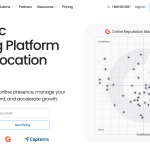Facing the decision to go to rehab is one of the most difficult and emotional crossroads someone can encounter. It’s a moment of raw honesty, admitting that maybe things have spiraled beyond what you can handle alone. But knowing when it’s time and what to do next? That’s where the questions get real, and the answers can feel overwhelming. Whether you’re dealing with substance abuse or addiction, recognizing the signs and getting help can be the first step toward reclaiming your life.
But how do you know if it’s really time to make that move? Let’s break it down because this is about empowering yourself to take control of your journey.
When Your Life Feels Unmanageable
If you feel like your life is spinning out of control, that’s a pretty solid sign something needs to change. Maybe it started small—just a few drinks here, a few pills there, maybe some stress relief that spiraled into something bigger. Over time, the line between casual use and dependency can blur until it’s nearly invisible.
You might be noticing that you’re losing touch with the things and people you once loved. Relationships may be strained, work performance has slipped, or you’re constantly trying to manage the chaos. This isn’t just about “rock bottom”—it’s about knowing when things have gotten too tough to juggle on your own. If you’re constantly putting out fires or waking up dreading how to get through the day, rehab might be a lifeline you didn’t know you needed.
When You Can’t Quit on Your Own
Let’s be real: most people think they can quit anytime. They think if they just have enough willpower, they can pull through. But for many, the pull of substances can feel too strong to break without help. This is when rehab becomes a serious consideration. If you’ve tried to quit only to relapse or feel an overwhelming craving that you can’t control, that’s a red flag.
Rehab gives you a supportive environment, free from the pressures and triggers of daily life. It’s a space where professionals understand how addiction works and how to guide you out of it. And whether you’re dealing with alcohol, prescription drugs, or overcoming heroin addiction, rehab gives you the structure you need to start healing for real.
When It’s Impacting Your Health
Your health is everything. Substance abuse doesn’t just affect your mind—it hits your body hard, too. From weight loss and fatigue to more serious issues like liver damage or weakened immune systems, your body sends signals when it’s struggling.
Addiction is more than a mental or emotional battle—it’s a physical one, and your body needs a break. If you’ve been sick more often, feeling run down, or noticing new health issues, your body is telling you something. Rehab provides medical supervision, ensuring your detox and recovery process is as safe as possible, helping you heal from the inside out.
When Friends or Family Are Expressing Concern
We all have that moment when someone close to us says something we don’t want to hear. If your friends or family are stepping in and expressing concern, it’s time to take a step back and listen. They love you, and they’re noticing the things that maybe you can’t see as clearly.
Sometimes, we get so caught up in our routine or denial that it takes an outside voice to wake us up to the reality of the situation. You don’t have to feel ashamed or embarrassed—being open to their concerns is a brave move. It’s your chance to make changes before things spiral even more. And if you’re not sure where to start, whether that’s Focal Point Recovery detox center in California, Asheville Recovery Center in North Carolina, or anywhere else, there are places waiting to guide you through this.
When You’re Ready to Regain Control of Your Life
The best part of going to rehab? It’s not just about quitting your substance of choice—it’s about regaining control of your life. Addiction steals your focus, your dreams, and your potential. Rehab gives you the tools to take that back.
Think of it as a reboot—a way to start fresh with a clearer mind, healthier body, and the knowledge to avoid relapse. You’ll learn coping mechanisms, how to handle triggers, and, most importantly, how to thrive without substances. Recovery doesn’t just end when you walk out of the door; it’s the start of a lifelong journey. But rehab is where you gain the tools to make that journey not just manageable but empowering.
Your Next Steps After the Decision
Deciding to go to rehab is a huge step, and it’s important to remember that it’s okay to feel scared or uncertain. What matters most is that you’re ready to make a change. So, what’s next? Start by reaching out to a professional—whether that’s through a detox center, rehab program, or your healthcare provider. They can guide you on the best options for your needs.
Once you’re in rehab, focus on healing. It’s not just about detoxing but learning how to rebuild. Surround yourself with a support system—friends, family, or fellow people in recovery. Remember that your journey doesn’t stop when rehab ends. It’s just the beginning of a new chapter in your life.
Ready to get back to the real you? The time is now.
Lynn Martelli is an editor at Readability. She received her MFA in Creative Writing from Antioch University and has worked as an editor for over 10 years. Lynn has edited a wide variety of books, including fiction, non-fiction, memoirs, and more. In her free time, Lynn enjoys reading, writing, and spending time with her family and friends.















